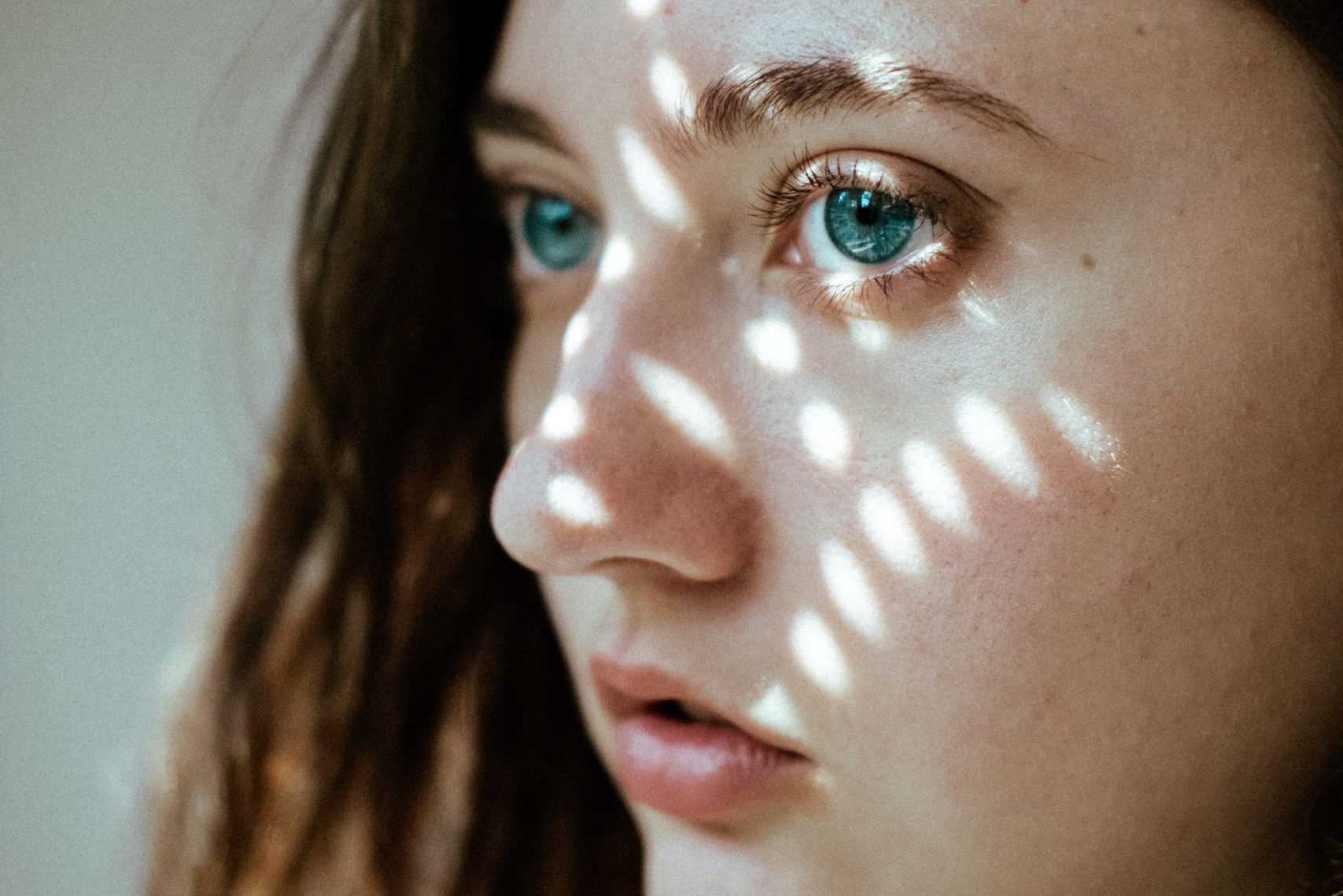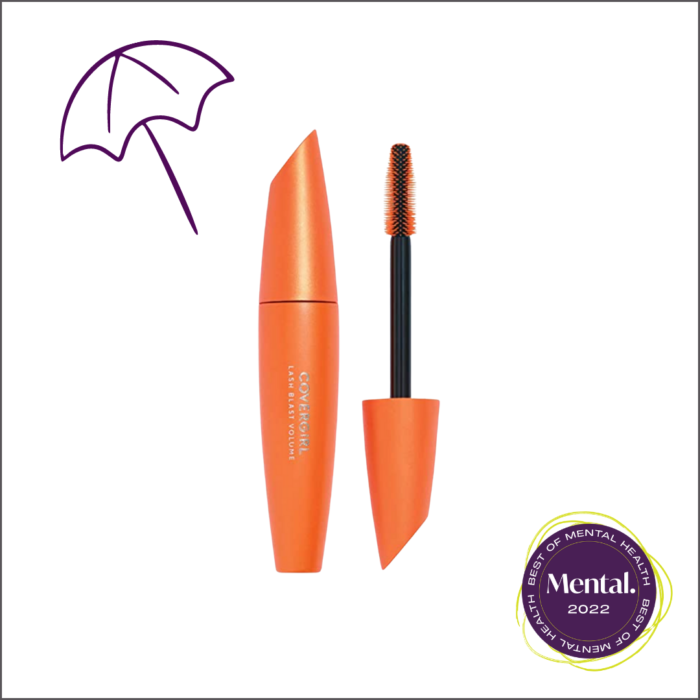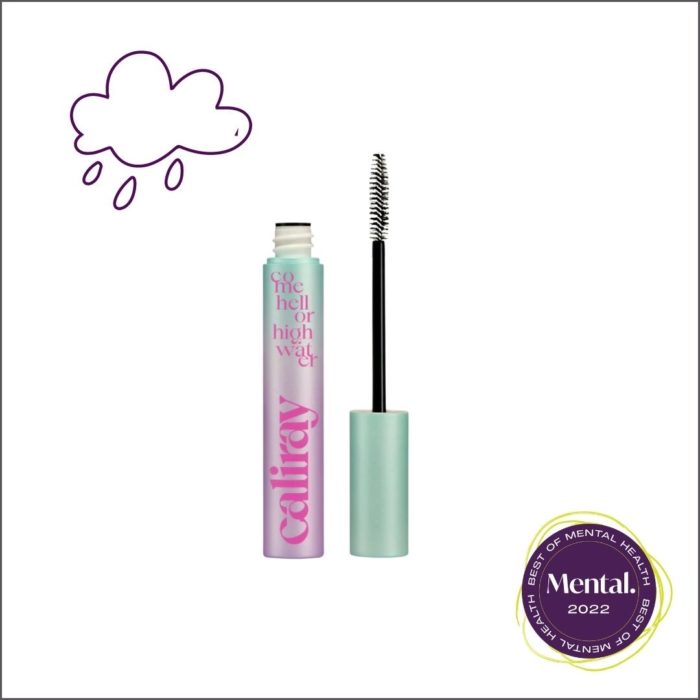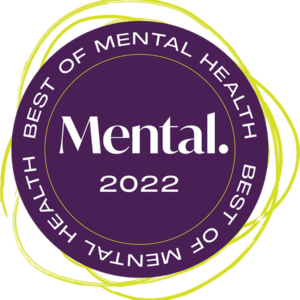You don’t cry while you sleep, but when you don’t sleep, you might cry. Yes, sleep and mental health are quite the bedmates. Sleep problems can be both a symptom of, and a risk factor for, conditions like anxiety and depression.
In a review of sleep studies published in the journal Cureus, stress and anxiety were listed as two of the top predictors of sleep problems…which are, according to the Division of Sleep Medicine at Harvard Medical School, sometimes the first symptom of depression. And, per one study, people with insomnia had a five times greater risk of developing depression and were 20 times (!) more likely to develop panic disorder.
Which comes first: hashtag sleep probs, or the mental ones? It’s hard to know, and the pandemic took things next-level. In a study published in Sleep Medicine, nearly 20 percent of participants met the criteria for insomnia disorder in November 2021—more than twice the number pre-pandemic.
You’ll need a therapist, lifestyle tweaks, and perhaps even meds to deal with sleep concerns this pressing. What we can help with here are the outer effects of too little sleep or—getting back to our earlier point—too much crying (a healthy response to stress, so long as it isn’t constant and disruptive).
They’re so connected, they even look the same, at least under your eyes. We’ve got…
- Puffiness. When sleep-deprived, fluids build up under the eyes; when you cry, tears can settle into the tissue around your eyes.
- Dark Circles. Crying sends a blood rush to the area, which presses up against already paper-thin undereye skin, creating a brown or red cast; and too few ZZZs, per one study, can make skin appear paler and, by comparison, blood vessels more prominent.
- Dryness. Skin showed signs of dehydration after just one day of sleep depro, according to one 2020 study. Another found diminished skin barrier function to be a side effect of poor slumber. With crying, salty tears pull moisture from the skin, leaving it parched and pissed.
It may sound like a lot, but as one Journal of Clinical and Aesthetic Dermatology study put it, “even a mild to moderate improvement in [dark circle] appearance can cause an improvement in the quality of life of the patient.” Really? That’s all it takes? Read on!
All products featured on Mental have been selected independently and editorially. When you buy from our links, we may earn a commission.
Best Tool for Undereye Puffiness
Sacheu Gua Sha Tool, $32
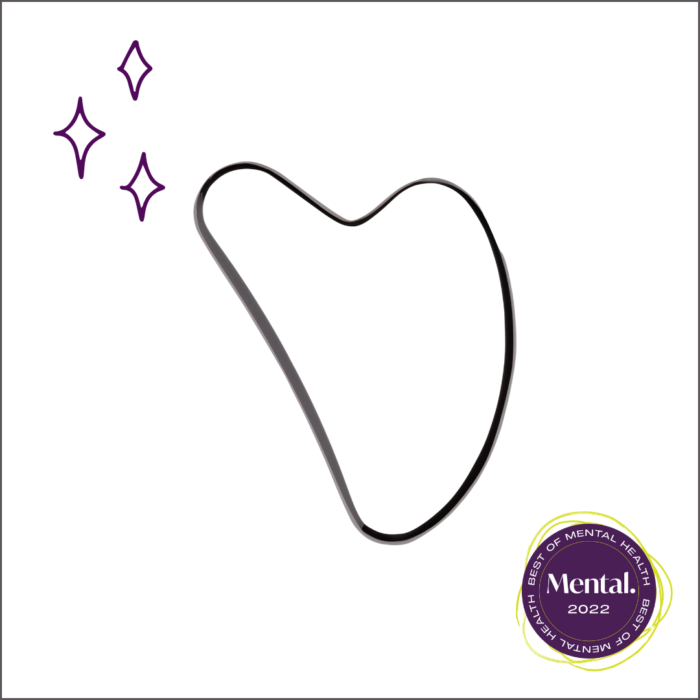
If your undereyes have started to resemble your favorite Uniqlo puffer, you could use some pre-concealer flattening from two proven techniques: cold therapy and massage. Enter this metal gua sha tool, as much a sensation on TikTok as Dylan Mulvaney (love you, D!). We see why: It’s naturally cooling and makes a less-than-glam task feel luxurious.
Stainless steel, Sacheu’s metal of choice, “feels icy on skin, helping move fluid out of the soft tissue under the eyes,” says Dendy Engelman, M.D., associate clinical professor of dermatology at Albert Einstein College of Medicine in New York City. (For a bigger chill, makeup artist Tim Quinn drops it in ice water for a few minutes first.)
Dab on a touch of eye cream or oil, then place the slim oval edge under eyes’ inner corners; drag it slowly with soft pressure to the outer edges, and repeat on each eye for two and a half minutes.
For mega puff, make it a whole self-care moment: “When prepping a client, I love to start with an eye mask,” says makeup artist Molly Stern. “I like to let those sit while I stimulate the rest of the skin, using serums, moisturizers and tools. If you’ve had a really rough night or way too much soy sauce with your sashimi, traditional chilled cucumber slices or chilled chamomile tea bags really do the trick.”
Best Concealer for Puffiness
Tarte Shape Tape, $31
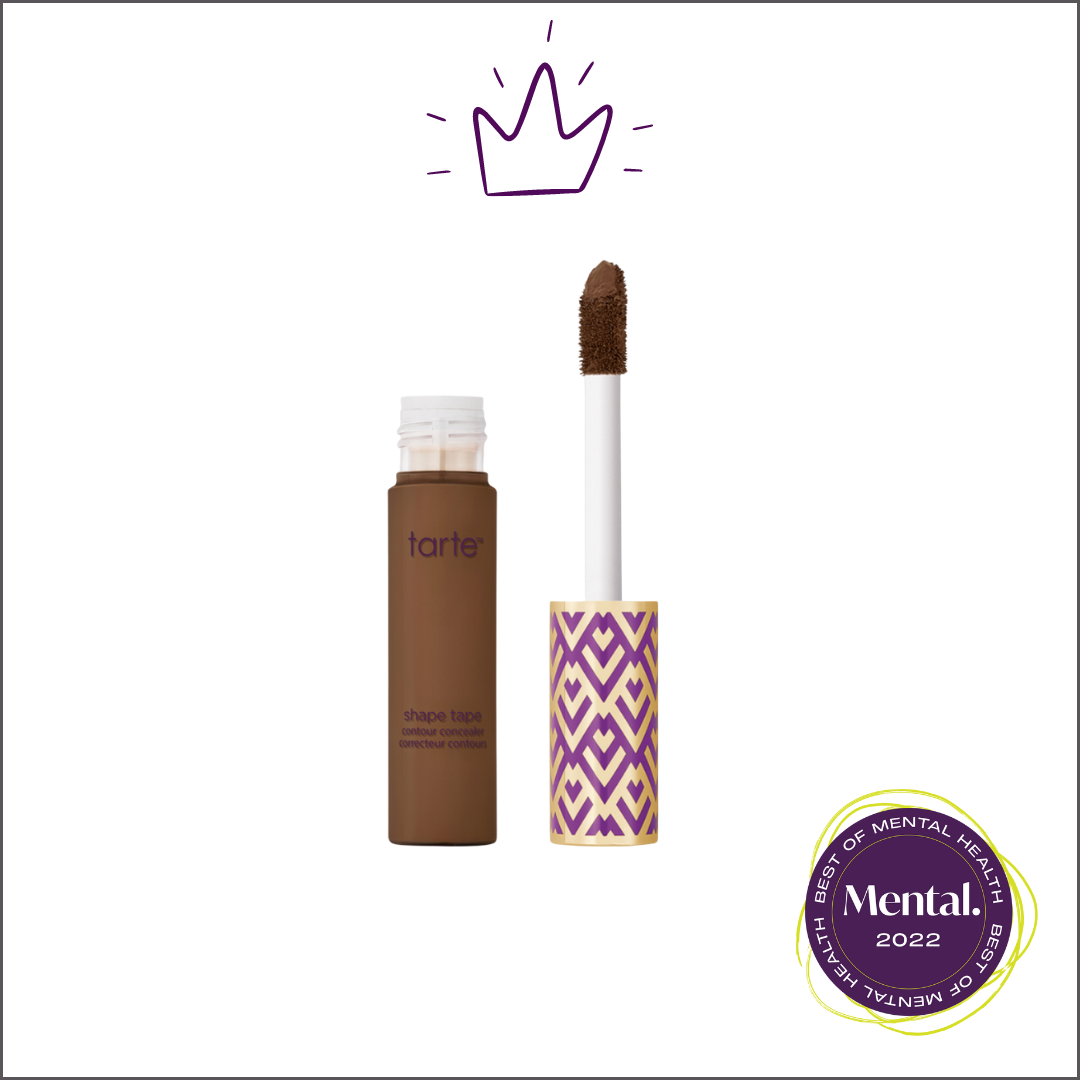
“If you experience puffy undereyes, you should stick to a matte or semi-matte concealer because luminous concealers will catch the light and make any puffiness look…well, more puffy,” says makeup artist and photographer Robin Black, creator of the cult beauty blog BeautyIsBoring.com.
To that point, Tarte’s long-lasting formula is both full-coverage and creamy (thanks to a dose of shea butter), and it doesn’t crease—even if you’re over the ripe old age of, ya know, 30. No concealer can make puff vanish, but Tarte’s does a bang-up job disguising it. It comes in 35 shades (and cool, warm, and neutral tones), and has an ideal applicator shape for poof-poof: Use the doe-foot tip to trace a half-moon shape along the bottom of the puffy area, then pat it in lightly to blend. The stuff works great for other textured spots, including acne.
You only need a dab to get the job done, which seems to be converting some more frugal shoppers. As one Ulta reviewer put it, “For someone like me that typically uses drugstore brands this stuff is liquid gold!”
Best Color Corrector for Undereye Puff
Nars Radiant Creamy Color Corrector, $30
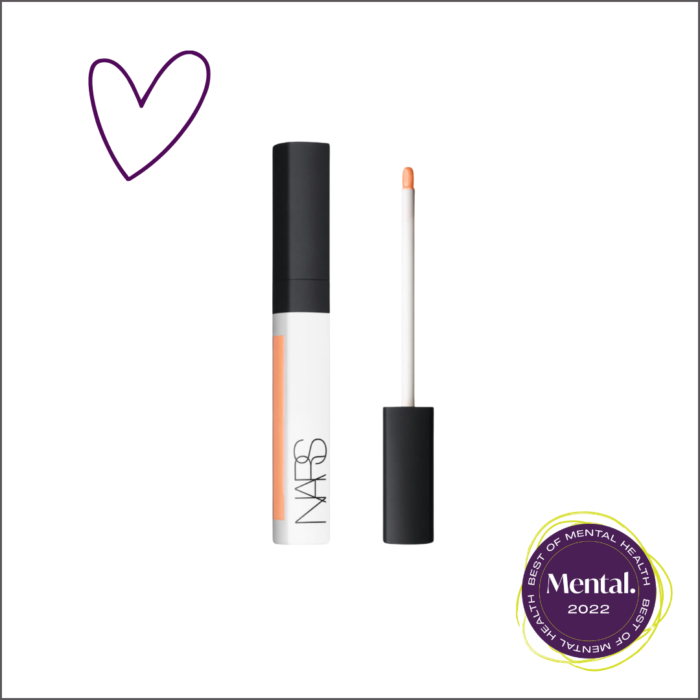
“I like to use a subtle color corrector over—yes, over—a tiny bit of semi-matte concealer,” says Black, author of The Beauty Sketchbook. “The Nars Radiant Creamy Color Corrector is an unsung hero product, especially for deeper skin tones.” But use judiciously: “The less product you use, the less texture you will have under your eyes, so just use the smallest amount to diffuse any darkness or discoloration,” she says. Comes in five hues.
Best Concealer for Dark Circles
Nars Radiant Concealer, $32
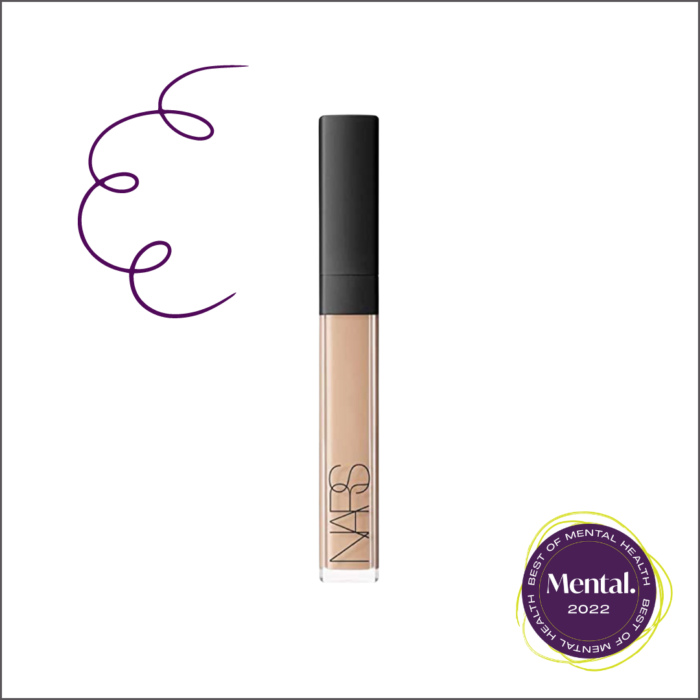
Nars it is again! But when five pros separately recommend the same product for the same purpose, we can’t just ignore it. It’s “easy to transport, and the applicator is terrific,” says Quinn, who explains just how “awesome” the “bit-creamy, not-too-dry texture and light-diffusing, long-wear” formula are. And as one beauty editor tells us, “It doesn’t cake but really disguises dark circles, which I get when I’m anxious or depressed.”
Best Eye Drops For Redness
Bausch + Lomb Lumify Redness Reliever Eye Drops, $16.59
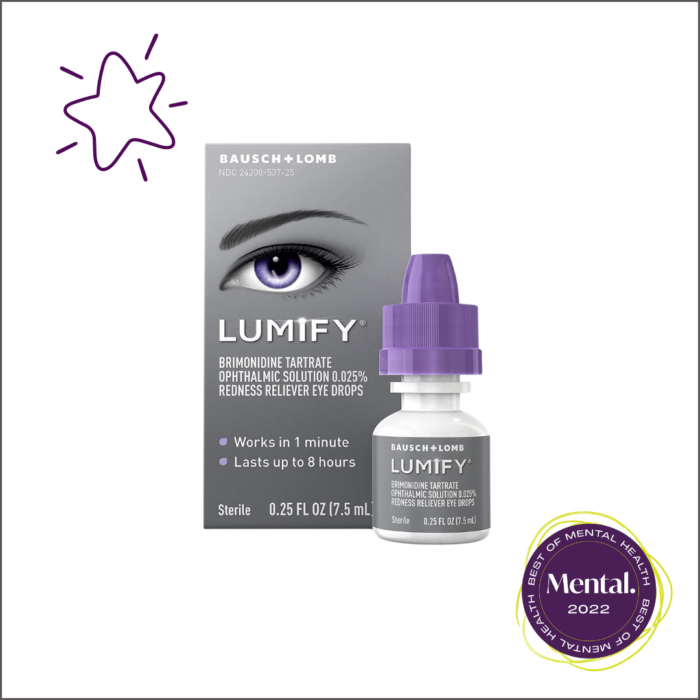
You’re bloodshot and not auditioning to be an extra on the 2023 Walking Dead-inspired Rick and Michonne miniseries. Whattya do? You squeeze in Lumify and be on your clear-eyed way. One veteran beauty editor uses these drops when she hasn’t slept or is feeling sad. “My eyes always lose their luster. This brings it right back,” she says. It does, after all, get 4½ Amazon stars out of nearly 50,000 ratings.
Amy Zguta, M.D., an ophthalmologist at Boone Hospital Center in Columbia, Missouri, says to avoid any red-out drops with phenylephrine, which “oftentimes burn and in rare circumstances can trigger angle-closure glaucoma.” Lumify, she explains, is actually a dilute glaucoma drop, and “although it works a little differently and doesn’t have the same risks, it is still constricting blood vessels.” If you’re dealing with actual dry eye, she recommends artificial tears and warm compresses, but in a pinch, “a little Lumify can quickly give that extra boost people are looking for.”
Best Cry-Proof Mascara
Why do they call it a “good cry”? Studies have shown that letting loose is a self-soothing behavior that can reduce stress. (It also has social benefits, like indicating when we need help.) So don’t stop, but if “tearjerkers” has become a broad, loose term encompassing everything from Lifetime meet-cutes and Hallmark commercials to calls with old friends and snuggly cat videos, just protect your lashes.
Silicone Bristles
CoverGirl Lash Blast Volume Waterproof Mascara in Very Black, $12.99

This drugstore staple has been the talk of beauty editors for years—the silicone bristles are simple to control and create both volume and definition—and earned statistically significant nods from Mental contributors. “I’ve worn this mascara forever but didn’t realize just how perfect for me it was until my anxiety peaked about five years ago,” says one writer. “I was so on-edge; I went from being a stony rare-crier to a soggy always-crier. Being behind on a deadline, feeling slighted by a friend, a heart-warming commercial—anything could trigger an absolute sob-fest.”
Cue to return to the mascara. “After my cries, I expected to look like that one GIF of Lauren Conrad from The Hills—with big ‘ol soot-black tears rolling down my face,” says our writer. “But it never happened. The mascara doesn’t budge, and yet I don’t need to use eye makeup remover to get it off my face at the end of a long day. Warm water and my gentle cleanser suffice. It’s like it’s sympathetic to me!”
Traditional Bristles
Caliray Come Hell or High Water, $24

“I am not a huge fan of waterproof mascara because I rarely like the way it looks and I prefer not to use heavy-duty removers at the end of the day. That being said, there are moments when it’s needed, and this is one of my go-tos,” says Black. “Technically it’s water-resistant, not waterproof, but its creator surfs in it, and I’ve had good luck in extremely humid climates. I just spent a week in Singapore wearing it without a single smudge, even in the rain!”
It uses tubing technology you can remove without scrubbing like a mo-fo: Waxes form mini tubes around each lash to protect against running; press a warm water-soaked tissue or cotton pad against your eyes for a few seconds, then gently swipe down and watch the little particles go bye. The vegan formula contains 2 percent argan oil to keep lashes soft (many waterproof mascaras dry out your fringe) and is free of phthalates and other potential chemical irritants—plus, it comes in a 100 percent recycled ocean plastic container. Nice to be savin’ the oceans while lashing out.
Want more of the most-vetted products and tips for mental health? Sign up for our newsletter and get Mental in your inbox!
Check Out Our Other Best of Mental Health 2022 Categories
Don’t Tell Me to Calm Down (But I Probably Should)
Geek Out on Our Sources
INTRO
Sleep and Mental Health: https://www.ncbi.nlm.nih.gov/pmc/articles/PMC6122651/
Anxiety, Depression, and Panic Disorder and Sleep:
https://sleep.hms.harvard.edu/education-training/public-education/sleep-and-health-education-program/sleep-health-education-87
Pandemic and Insomnia: https://www.sciencedirect.com/science/article/pii/S1389945721004196
Skin Signs of Sleep Deprivation: https://www.ncbi.nlm.nih.gov/pmc/articles/PMC3738045/
Sleep Deprivation and Skin Dehydration: https://pubmed.ncbi.nlm.nih.gov/31692145/
Sleep Deprivation and Skin Barrier Function: https://pubmed.ncbi.nlm.nih.gov/25266053/
Sleep, Paler Skin, and Blood Vessels: https://my.clevelandclinic.org/health/symptoms/23128-dark-circles-under-eyes
Dark Circles and Mild to Moderate Improvements: https://www.ncbi.nlm.nih.gov/pmc/articles/PMC4756872/
CRY-PROOF MASCARA
Crying as Self-Soothing Behavior: https://www.ncbi.nlm.nih.gov/pmc/articles/PMC4035568/
